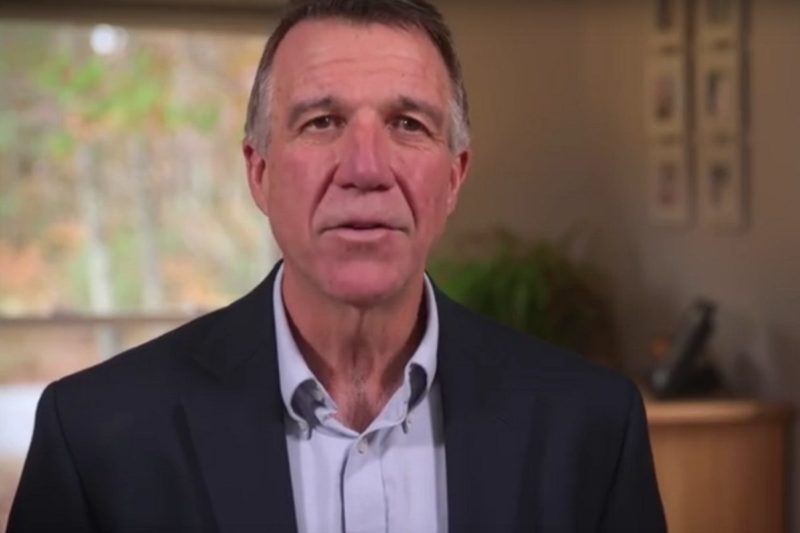Vermont’s ‘Pro-Choice’ GOP Gubernatorial Candidate Would Consider Anti-Choice Measures
Vermont's Republican gubernatorial nominee Phil Scott has said he opposes so-called partial-birth abortions—a non-medical term coined by anti-choice groups in an effort to make abortion restrictions easier to pass—and would support a fetal homicide bill.

Though Vermont’s Republican gubernatorial nominee Phil Scott says he is pro-choice, he would reportedly consider signing restrictions on abortion care if elected.
“Republican Phil Scott said Monday he generally supports abortion rights, but if he’s elected governor he could imagine signing bills barring some late-term abortions or restricting minors’ access to the procedure,” reported the Associated Press on Monday.
“I’m pro-choice,” Scott, Vermont’s lieutenant governor, told the outlet. “I believe it. I really do. I’m just not pro-choice enough.”
The AP reported that Scott would “allow” later abortion care in cases of life endangerment or fetal endangerment. Scott also told the outlet that as governor he would only support parental notification legislation that provides exceptions for young people in abusive households and that he would seek to “protect young girls who are victims of sexual crimes.”
When asked by local WCAX reporter Kyle Midura if he would veto a parental notification law as governor, Scott sidestepped the question.
“I don’t see that happening,” he said. “I don’t see anything like that happening in Vermont.”
Questions about Scott’s positions on reproductive rights emerged after Planned Parenthood Vermont Action Fund Independent Expenditure PAC released an ad targeting the Republican candidate, and after some Democrats in the state held a press conference on the topic. Scott is running in the governor’s race against Democrat Sue Minter.
During his time as a state senator, Scott co-sponsored a parental notification bill during the state’s 2003-2004 legislative session. And while filling out an issue position survey for Planned Parenthood of Northern New England in 2010, Scott said he supports a “woman’s right to choose; however, I do not believe it needs to be a ‘blank check’ in order to be effective,” according to a fact-checking column in Seven Days, Vermont’s alt-weekly newspaper.
In that survey, Scott reportedly said he opposes so-called partial-birth abortions—an inflammatory, non-medical term coined by anti-choice groups in an effort to make abortion restrictions easier to pass—and would support a fetal homicide bill if it was a “well-written law that carefully defines the circumstances under which a fetal homicide ruling would apply; for example, a car accident caused by a drunk driver in which a fetus was killed.”
Scott, however, has spoken out against GOP efforts to defund Planned Parenthood and has said the health-care organization does “really good work for a lot of people in need.”
Scott’s campaign coordinator, Brittney Wilson, speaking to the Vermont Press Bureau last week, framed Scott’s supposed support for a parental notification law as an effort to protect minors.
“He believes there should be protections in place for minors so they don’t have to go through a situation, an abortion, on their own,” she said. “It’s really just about protecting youth and kids who are not old enough to make reasonable decisions, such big decisions, on their own,” she said.”
Wilson added that putting a minor in danger through a parental notification requirement is “obviously not something Phil would support.”
Anti-choice lawmakers frequently argue that abortion restrictions are meant to protect those who seek care.
Parental notification laws often prompt minors to travel out of state to seek abortion care, according to a 2009 analysis from the Guttmacher Institute. Most minors who have abortions do choose to tell at least one parent, while those who don’t often make that decision because doing so “would only exacerbate an already volatile or dysfunctional family situation,” according to the American Civil Liberties Union.
Minter, Scott’s Democratic opponent, said during a recent gubernatorial debate that she believes she is “the only candidate who actually supports a woman’s right to choose without exceptions.”
